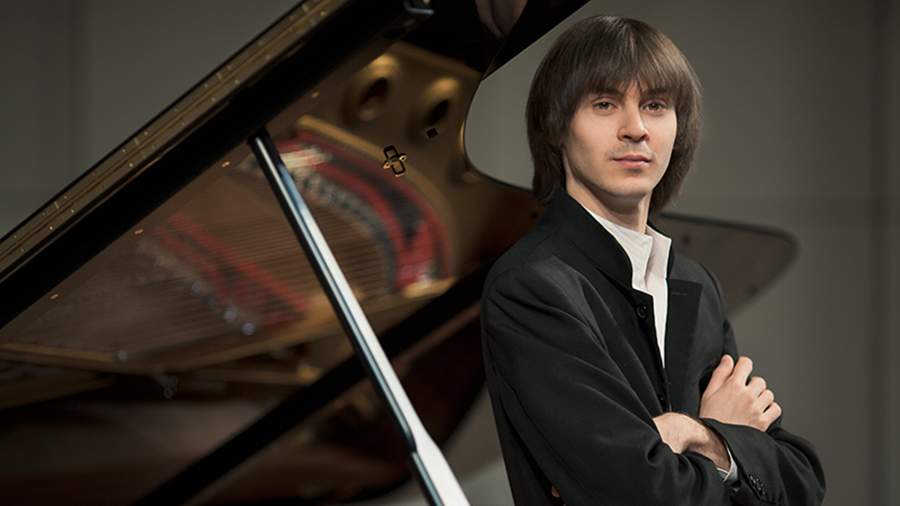On April 21, the Kremlin will host the third concert from the series "Live Echo of the battles of the Past"
- Новости
- Press releases
- On April 21, the Kremlin will host the third concert from the series "Live Echo of the battles of the Past"

On April 21, the State Kremlin Palace will host the third concert from the series "The Living Echo of the Battles of the Past", which takes place in honor of the 80th anniversary of the Great Victory. This time it will be dedicated to the feat of the hero city of Leningrad, whose inhabitants have shown the whole world an example of incredible courage, perseverance and love for the Motherland. The Cycle was organized by the Artes Cultural Charity Foundation with the support of the Presidential Foundation for Cultural Initiatives.
The terrible tragedy that the Leningraders had to go through during the 872 days of the blockade has gone down in history forever. Of the three million inhabitants of Leningrad and its suburbs before the outbreak of the war, in 1944 there were no more than 800 thousand. Famine, bombing and shelling claimed the lives of about one and a half million people. At the same time, humanity was shocked by how the people who found themselves in them showed themselves in unthinkable conditions. Exhausted, and literally barely alive, they continued to work, producing weapons, ammunition, medicines and vaccines, communications equipment, and creating works of art that were later recognized as masterpieces. And yet, cultural institutions operated in the besieged city, and in between enemy raids, its residents listened to music and watched performances.
It was in besieged Leningrad that Dmitry Shostakovich began writing his Seventh Symphony. And here, in the hall of the Leningrad Philharmonic, it was performed on August 9, 1942. The performance of this music was given exceptional importance: all the artillery forces of the besieged city were thrown to suppress the enemy's firing points. Despite the ongoing airstrikes by the Nazis, all the chandeliers in the Philharmonic hall were on fire. The hall was full, and the audience was very diverse: armed sailors and marines, air defense fighters dressed in jackets, and townspeople who attended philharmonic concerts who found it difficult to walk to the Philharmonic hall. Shostakovich's music reflected the principle that united everyone: faith in victory, sacrifice, boundless love for his city and country.
The concert was broadcast over loudspeakers. Accordingly, the enemies who surrounded the city also heard him. For many of them, what was happening was a shock. As a former Wehrmacht officer recalled many years later, it was then that "... it became clear that we had lost the war. We have felt your power to overcome hunger, fear, even death."
In the same 1942, this piece was performed in London and New York. However, the day of the premiere of immortal music is considered to be March 5, 1942. It was then in Kuibyshev (now Samara), at the Kuibyshev Palace of Culture, that the Bolshoi Theatre Orchestra conducted by S.A. Samosud performed it for the first time. The fact is that it was in Kuibyshev, where he was evacuated with his family, that Dmitry Dmitrievich completed the last movement of his Symphony No. 7, called Leningradskaya. The composer himself, recalling his work on it, confessed: "I have never composed as fast as I do now."
During the Great Patriotic War, many cultural figures were evacuated to Kuibyshev. Among the first listeners of Dmitry Shostakovich's Symphony No. 7 were Bolshoi Theater conductors A.S. Melik-Pashaev and L.P. Steinberg, choreographer A.M. Messerer, singers I.S. Kozlovsky and M.O. Reisen, writers V.P. Kataev, A.N. Tolstoy, I.G. Orenburg, violinist D.F. Oistrakh, pianist L.M. Oborin, directed by S.M. Mikhoels.
Shostakovich's new work made a huge impression on everyone.
The concert, which will take place at the Kremlin Palace on April 21, will also feature Sergei Rachmaninoff's Second Piano Concerto. This is a truly significant work for Russian and world culture, which, along with the composer's Third Concert, is deeply patriotic, telling about the deep origins of the very Russian soul, which has remained a mystery to other nations for centuries.
Sergei Vasilyevich Rachmaninov always considered himself a Russian composer, and after being forced into exile in 1917 after the October Revolution, he could not write music for almost ten years. "Having lost my homeland, I lost myself," Sergei Vasilyevich said.
A hereditary nobleman, Sergei Rachmaninov did not accept Soviet power, but in the 1920s his food parcels helped many of his compatriots survive. And during the Great Patriotic War, he transferred the fees from concerts to the Red Army Fund and the USSR Defense Fund – a military aircraft was built with this money.
Dmitry Shostakovich's Seventh Symphony and Sergei Rachmaninoff's Second Concerto will be performed at the State Kremlin Palace by Philip Kopachevsky (piano) and the Russian National Orchestra conducted by Ivan Nikiforchin. The artistic word is an actor of theater and cinema Kirill Kuznetsov.
Thanks to the use of modern multimedia technologies, the concert guests will not only be able to enjoy great music in excellent performance, but also immerse themselves in the atmosphere of an impressive plot action, reminiscent of the most important pages of Russian history.
Переведено сервисом «Яндекс Переводчик»
